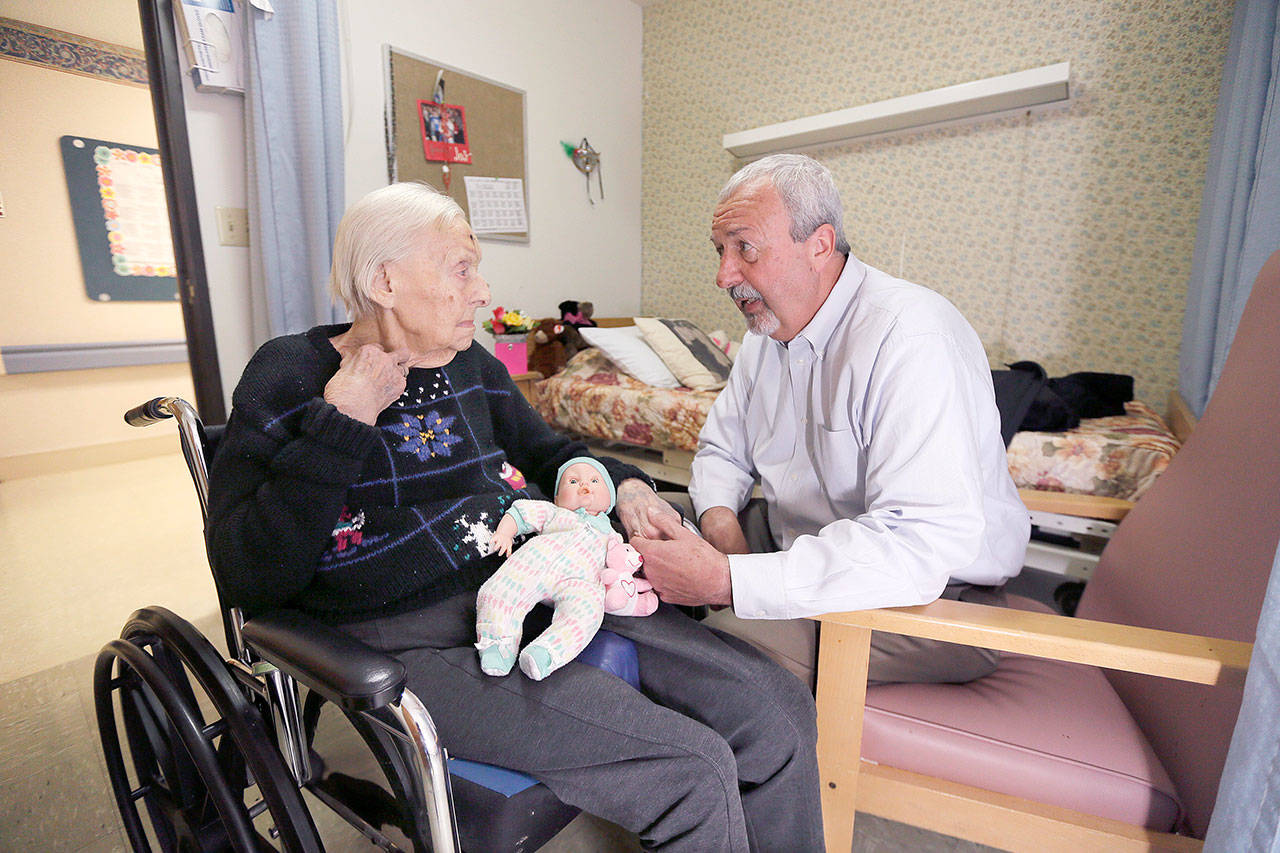Once someone has been admitted to a nursing home, who would imagine they would be evicted? After all, don’t they have coverage under Medicare, Medicaid, or some type of long-term care insurance? Even if they are a difficult patient, aren’t the staff trained and experienced enough to deal with that?
Apparently not. Take the case of Mrs. R. , who was visiting California from the East Coast to help her mother, who was ill, when her father, who had Alzheimer’s, was admitted to a nursing home. As some cases can be, he was violent and dismissed from not one, but three nursing homes. Even in his own home, the violence continued, this time in the form of physical abuse directed at his wife.
Violence is not an uncommon manifestation of Alzheimer’s and although nursing homes are expected to be able to handle difficult personalities, sometimes even they give up.
But even more troubling are the cases where individuals are evicted (or dumped as it is known) for financial reasons.
A series of cases now pending in Maryland demonstrate the issue. One home, part of a chain, is facing legal problems due to an episode where the staff dumped a woman, suffering from throat cancer that left her unable to speak, outside a homeless shelter in Baltimore where she knew no one and had no money. (The woman was from West Virginia.) She was evicted, it has been charged, because her Medicare benefits had run out and she had no other source of payment.
Medicare only covers the first 100 days of a nursing home stay. Long-term care insurance may pick up the rest, if an individual can afford it; or in the absence of this, Medicaid, a combination federal-state program could pay.
In the case of Medicare, if it looks like a patient is going to need to stay longer in a home than the 100 days, he or she can sign up for Medicaid which provides coverage from day 101.
But that can trigger other issues. A patient who has used up those Medicare days will often find life has changed. One woman was moved from a private room to a two-bed one with a companion who lay in a vegetative state. In addition, she was hard-of hearing, but instead of inserting her hearing aids in her ears they usually left them on the tray table.
Some nursing home residents can face a variety of problems — neglect, abuse (both physical and financial), eviction, and more. That is why almost all area agencies on aging have an ombudsman program to investigate complaints of poor care or other problems. The Long-Term Care Ombudsman Program operates under the auspices of the Administration on Community (formerly the Administration on Aging).
With a program in every Area Agency on Aging in the nation, the job of the ombudsman is to advocate for residents. As the website notes: it is “a voice for those unable to speak for themselves.” In 2014, the program received 191,553 complaints representing 125,642 patients; discharge problems were at the top of the list.
“Ombudsman are required to be notified by the facilities when they give an individual a 30-day discharge notice,” said Traci Kline, Director of the Franklin County Area Agency on Aging in Franklin County, Pennsylvania. “If this requirement is upheld, the Ombudsman can become involved immediately to ensure the wishes of the resident are upheld, and that appropriate placement is obtained. On a broader spectrum, if they become aware of a situation that caused their funds to be depleted and therefore couldn’t afford to pay their nursing home bills, they can also make sure a referral is made to a local older adult protective services for further investigation.”
Ombudsmen have certain advantages. They can enter any nursing home unannounced, talk to a resident privately, and go throughout the facility. All complaints are kept confidential.
A new way to measure the type of care nursing home residents receive has been developed by the American Health Care Association, which represents some 13,000 nursing homes and assisted living residences. It has drawn up a questionnaire to “assess long term and post-acute care satisfaction among patients and their families.” They bill themselves as the only ones in the nation to have addressed this issue. Only recently announced, the plan is to administer separate surveys to those who leave a nursing home within their 100 Medicare days and those who are in a home longer than 100 days. As it is so new, there is no information yet as to its effectiveness.
Legislative action is being taken to provide remedies to deal with nursing home complaints. The Illinois state legislature, for example, is considering two bills (in the House and Senate) which would establish monetary penalties for improper discharges and give ombudsmen greater ability to advocate for residents. It would also allow the state Public Health Department to order a resident to be returned to a home if, after a departmental public hearing, he or she is found to be in the right.
There are a couple of other routes that a patient or a family member can take to reverse an eviction. The My Elder Advocate organization claims to “have a 100 percent success rate in preventing evictions, and reversing them if they’ve already occurred.” There is a fee for its services. The National Consumer Voice for Quality Long-Term Care offers extensive advice on its website and provides an advocacy toolkit.
Talk to us
> Give us your news tips.
> Send us a letter to the editor.
> More Herald contact information.

























